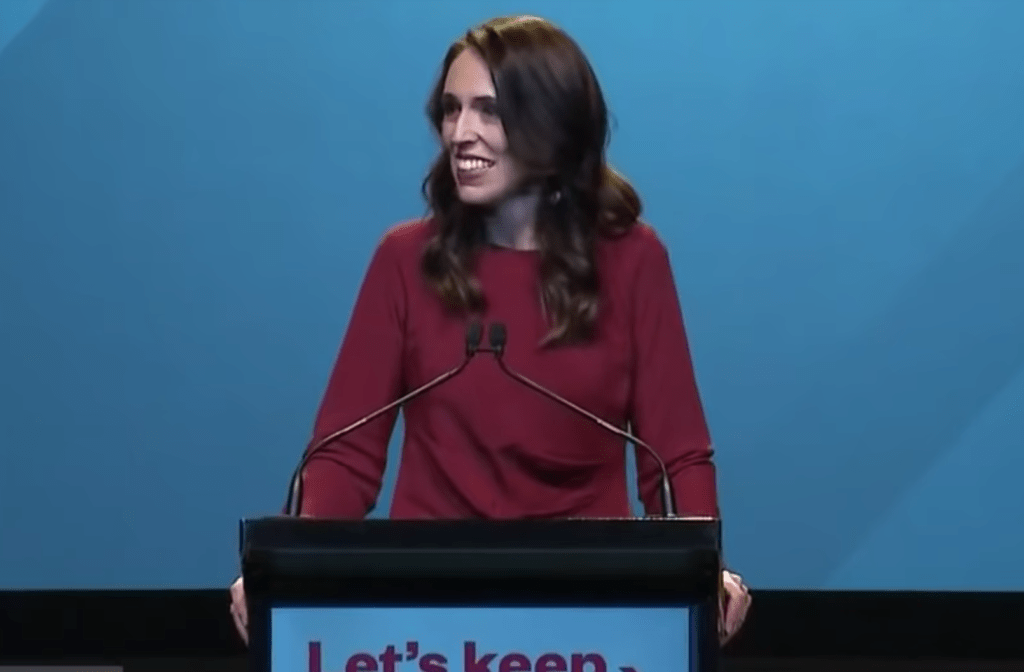On Saturday night, The New Zealand Labour Party led by Jacinda Ardern won a second term of government in what will forever be remembered as an historic year.
It wasn’t by a whisker either. The party secured a landslide victory–49% of the vote– which was announced even before all were counted. Critically, the result means Labour could govern alone —the first time this has happened since the country introduced a mixed member proportional (MMP) electoral system in 1993.
In her victory speech, Ardern acknowledged the extraordinary mandate bestowed on her government by the New Zealand electorate.
“This is not an ordinary election and this has not been an ordinary time,” she said. “Tonight’s result is strong. It is clear that Labour will lead the government for the next three years.”
Ardern urged New Zealanders to “keep going” despite immense pressures and hardships.
“Now more than ever is the time to keep going, to keep working, to grab hold of the opportunities that lay in front of us,” she said.
“That light has always been more powerful than the most overwhelming darkness.”
Of course, it is these last words by the Prime Minister that epitomise her brand of leadership. Since first elected in 2017, Ardern’s approach has always been about compassion, inclusion and quiet competence. And on several historic occasions she’s had the opportunity to back this up with action.
When New Zealand faced one of its darkest hours in the wake of the Christchurch mosque massacre, Ardern’s leadership provided the hope a grieving country desperately needed. The day after the tragedy, Ardern met with victims’ families. She embraced them, and wore a traditional hijab in a mark of extraordinary solidarity.
“If in wearing the hijab as I did gave them a sense of security to continue to practice their faith, then I’m very pleased I did it,” she later said.
Moving beyond gestures, she then asked the bereaved for advice on what her government’s response should be, rather than deciding independently how resources be allocated. “Our time is for you to determine,” she told them.
She also refused to refer to the Australian gunman by name in a bid to deny him notoriety. “He is a terrorist. He is a criminal. He is an extremist. But he will, when I speak, be nameless.”
When New Zealand was then thrown into more upheaval with the eruption of White Island’s volcano in 2019, Ardern was on the frontlines. She met and spoke extensively with first responders, ship workers and those who had lost loved ones.
The response from her countrymen and women was emphatic. They were proud of and grateful for her leadership during an unfathomable tragedy.
But Ardern’s success doesn’t just hinge on gestures of love and light. In her handling of the Coronavirus she demonstrated fierce and unwavering resolve. Leaning on advice from the country’s health experts, Ardern enforced strict lockdown measures in March before the virus had a chance to spiral out of control. Her intent was to eradicate COVID– and with fewer than 25 Kiwi deaths on record, it’s fair to conclude her strategy proved successful.
New Zealand may be a small country but Jacinda Ardern’s landslide win is globally momentous. It proves that the ugly politics of division so commonly employed is not the only way.
Fear is powerful, no doubt. And leaders like Donald Trump will continue to use it to propel themselves forward with self interest at the core of their ideology. But the longevity of fear is limited. Power is not leadership, and, at a certain point, even the most fragile electorates will look to light instead.
With hearty gusto, that’s what Kiwis opted for.


